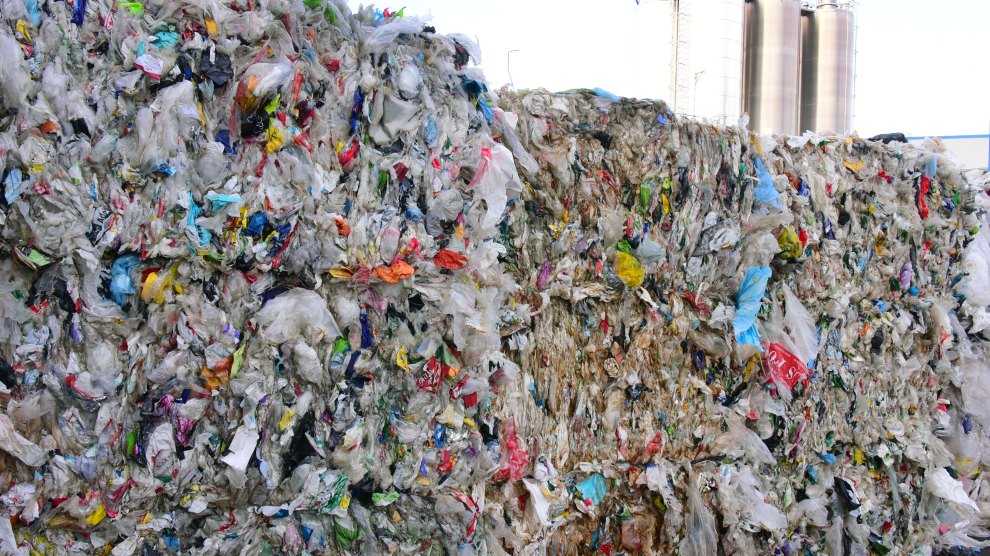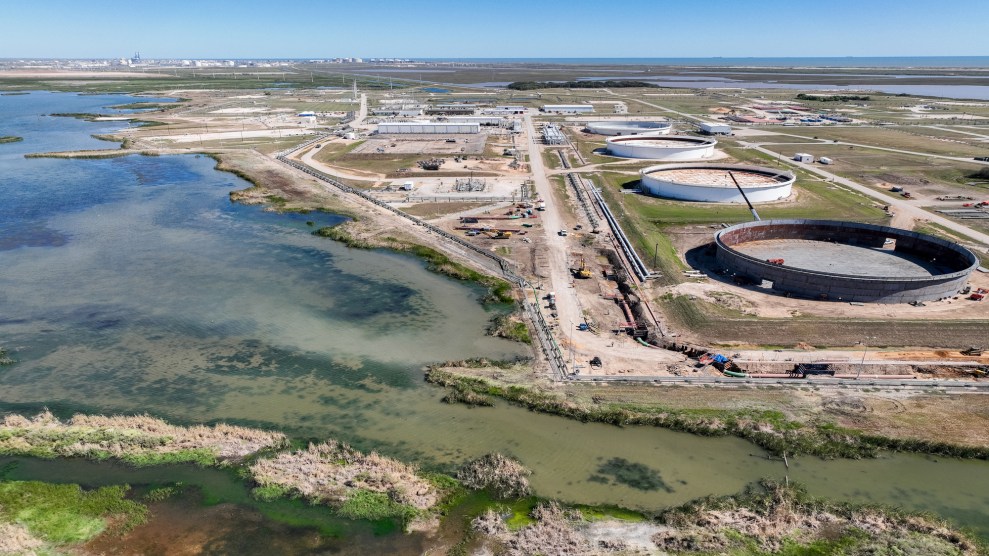
Bioluminescent plankton at Three Cliffs Bay in the UK. Media Drum World via ZUMA Press
This story was originally published by Grist and is reproduced here as part of the Climate Desk collaboration.
Rising temperatures could transform plankton and other tiny aquatic organisms into a huge source of carbon emissions, a little-known—and potentially catastrophic—climate tipping point that could accelerate global warming.
A study, published Thursday in Functional Ecology, found that rising temperatures cause a sudden shift in these microbes’ eating habits, flipping them from carbon absorbers to carbon emitters.
No one knows just how much carbon these microorganisms could release, and this tipping point hasn’t yet been considered in climate models. But it could be quite substantial, because they’re among the world’s most abundant organisms, living in the ocean, lakes, peatlands, and other bodies of water.
“Here we have these understudied microbes that are probably the dominant microbes in the world,” Daniel Wieczynski, an author of the study and a biology researcher at Duke University, told Grist. “And suddenly we’ve realized that they could be sort of the architects of catastrophic consequences of climate change.”
These tiny creatures are called “mixotrophs” because they use a mix of strategies to obtain food. They’re considered protists, a class of abundant, single-celled organisms that aren’t quite plants or animals. Mixotrophs can, like plants, use photosynthesis to get the energy they need, or can, like predators, hunt bacteria. “When their dominant strategy is photosynthesis, they can have a net cooling effect by taking more greenhouse gas out of the atmosphere,” Wieczynski said. “If they do more eating of bacteria, they’re pumping more CO2 back into the atmosphere than they’re taking up.”
Wieczynski, along with other researchers at Duke and the University of California, Santa Barbara, used computer models to predict how rising temperatures might affect these microbes’ metabolism. Looking at temperatures spanning 4 degrees C—from about 66 to 73 degrees F—the abrupt shift from photosynthesis to carnivorousness happened about halfway up the range. “Just a couple degrees is all it takes,” Wieczynski said, though he noted the research is still theoretical. “If this is the way that mixotrophs work, and they’re all sitting just below these tipping points, they could easily transition to this new state within the century.”
The world has already warmed 1.2 degrees C, or about 2.7 degrees F, since the Industrial Revolution ushered in the widespread use of fossil fuels, and it’s on track to warm 2 to 4 degrees C (3.6 to 7.2 degrees F) by 2100. Researchers predict that once these microbes cross this tipping point, it would take a large amount of cooling, perhaps more than 1 degree C (1.8 degrees F), to turn them back into a carbon sink.
Climate tipping points are notoriously hard to predict, but mixotrophs are supposed to send out a warning signal before they reach the critical juncture. When the population size of mixotrophs starts to fluctuate wildly, it gives researchers a heads-up that something is wrong, according to the study.
Nutrient pollution can cloud this signal, however, or cause it to disappear altogether. For example, when fertilizer from farms runs off into the water, filling it with nutrients like nitrate and phosphate, the tipping point can arrive with no warning, the study says. This could be a problem for peatlands, which store vast amounts of carbon—about twice as much as all the world’s forests—and are often found near farms.
Even if researchers do recognize the warning signal, it’s unclear how long the world will have before the catastrophic switch: It could be anywhere from days to decades, Wieczynski said. Various ecosystems might reach the tipping point at different times, too.
“We’ve got these organisms all around us, but we don’t really know much about how climate change is going to affect them,” he said. “But they could be the most important piece of the biological puzzle when it comes to climate change.”












